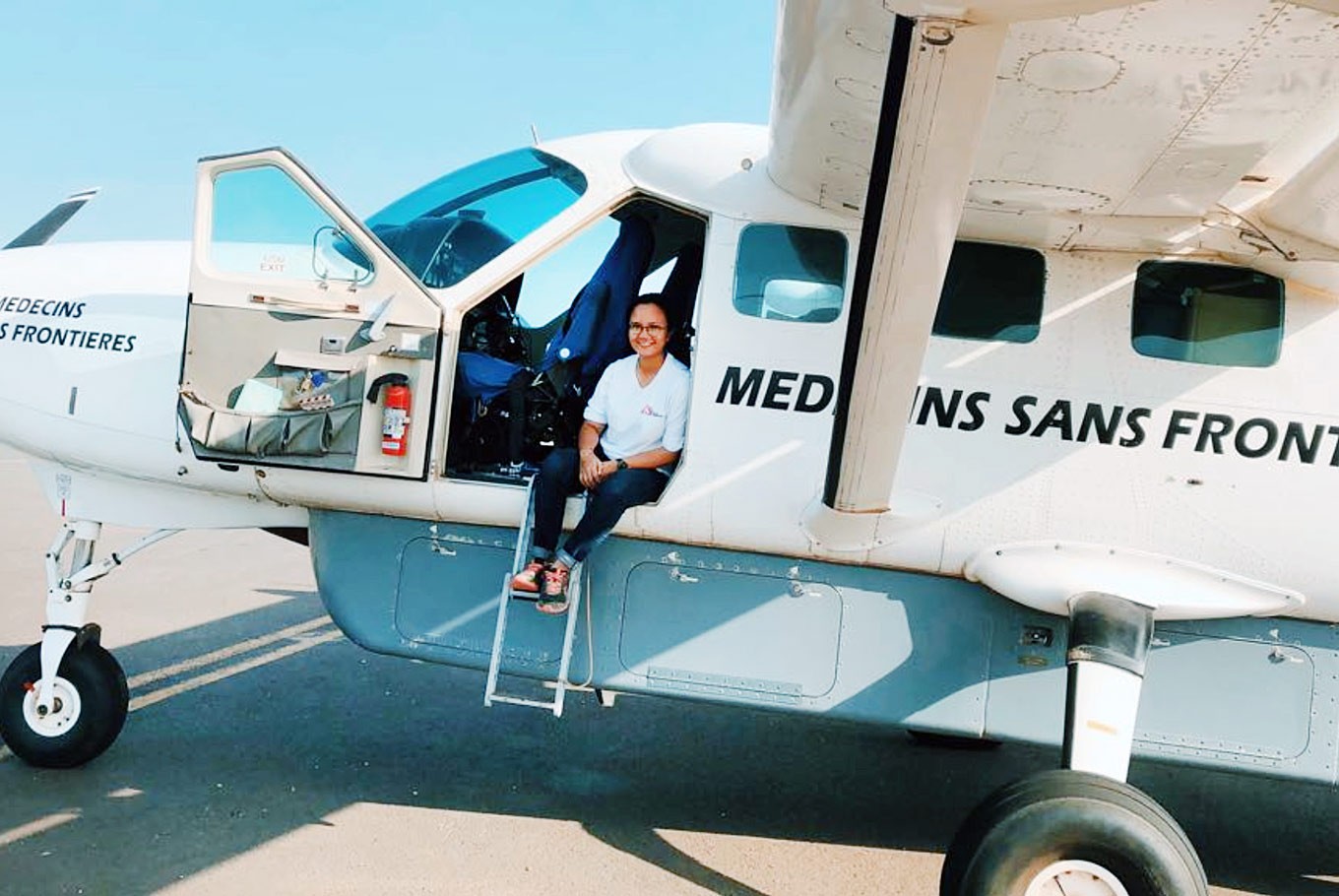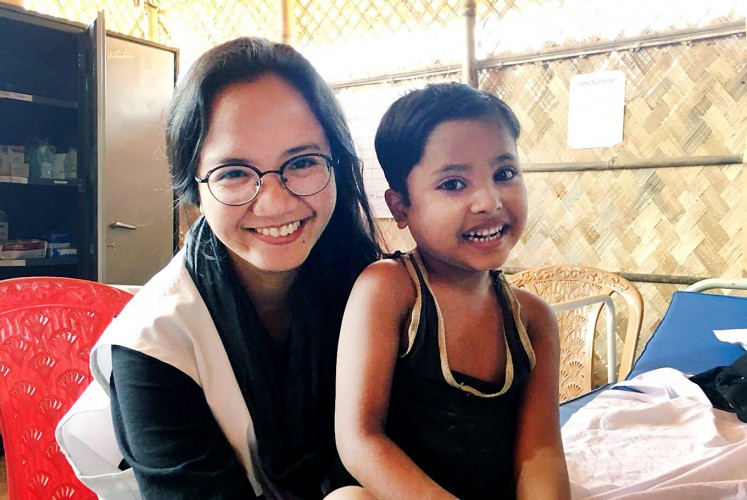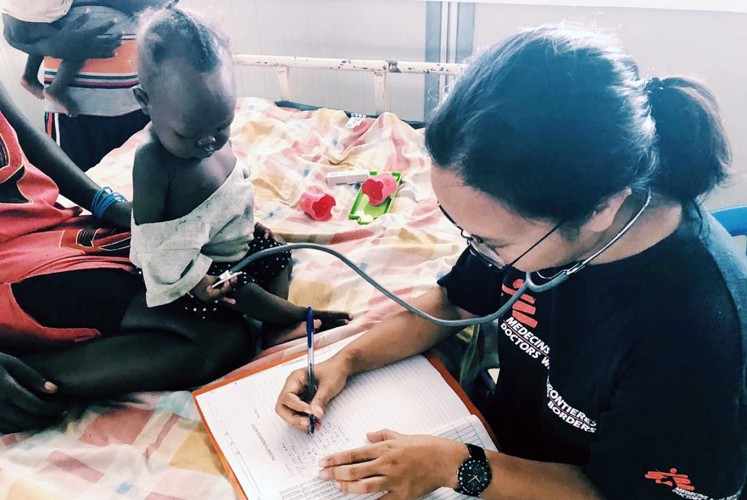Popular Reads
Top Results
Can't find what you're looking for?
View all search resultsPopular Reads
Top Results
Can't find what you're looking for?
View all search resultsRangi Wirantika: A humanitarian, inside out
As many children grow up and divert from their childhood dreams, Rangi Wirantika holds onto hers with passion.
Change text size
Gift Premium Articles
to Anyone
E
arly on, Rangi Wirantika knew she wanted to be a doctor with Médecins Sans Frontières (Doctors Without Borders/MSF).
When she was 11 years old, she frequently watched the ongoing war in Kosovo broadcast on TVRI’s news program, Dunia Dalam Berita (the World in the News).
“My heart broke seeing the refugees affected by the conflict. It was around that time I decided I want to be a humanitarian worker,” recalled Rangi, who will turn 30 on Nov. 1.
During her high school years, a friend told Rangi about MSF, one of the non-governmental organizations actively contributing to the war relief effort in Kosovo.
The information spurred her to pursue a medical degree at Trisakti University, in Jakarta. She graduated in 2012, taking an internship in Lampung a year later and joining MSF in 2015.
In the three years that have passed since, Rangi has been deployed to a number of conflict areas, including Pakistan and Yemen.
“The working environment and living conditions were definitely not the same as in Indonesia. When I was stationed in Yemen, air strikes would rain down day and night on the entire zone. It was quite a shock for me,” she told The Jakarta Post.
Along with a hostile environment, doctors in conflict areas are likely to handle patients with cases they would never encounter during peace.
“The patients would often have injuries that were common in conflict areas, ranging from bomb blast injuries that required emergency amputations to gunshot wounds. Many times, we would also see malnourished children, as the conditions made it harder for them to obtain food,” Rangi said.
Even with the horrendous conditions, MSF’s principles of neutrality and impartiality means that the organization operates independently of the government in a conflict zone.
“We mostly receive donations from anonymous sources. If we accept donations from a state’s government, that would mean we were no longer impartial,” Rangi said, noting that the organization treated anyone in need of medical assistance, regardless of their identity and affiliations.
For Rangi, MSF’s neutrality is a boon for her and other doctors, as most of the time, the combatants threatening them would be ordered to stop harassing the doctors or risk losing medical assistance.
All smiles: Rangi Wirantika poses with a child during her assignment in Cox’s Bazar, Bangladesh. (Rangi Wirantika/File)Her most recent assignment was in Bangladesh, covering the Rohingya crisis for three months. She considered the posting as the hardest she has ever done.
“I’ve never been assigned to a refugee camp, and the Rohingya refugee camp is the largest in the world. Our job was to provide health services inside the camp,” Rangi said.
The situation was not helped by the refugees’ living conditions, as they lived in makeshift shelters made out of bamboo and plastic.
“The tiny makeshift shelters often housed up to eight members of a family, and there was once a diphtheria outbreak because of how close they lived together. Once someone gets sick, everyone in the family needs to be treated,” Rangi said, adding that the weather also played a part in the misery.
According to Rangi, the situation did not improved after she left Bangladesh, as the intake of refugees did not stop. Around 3,000 refugees arrived at the camp in February, with around 900,000 now living there. “When I first arrived at the camp in November, there were approximately 700,000 refugees. Imagine another 200,000 coming in by March,” she said.
At work: Rangi Wirantika writes information about a patient in South Sudan. (Rangi Wirantika/File)Rangi explained that her relatively short time at the camp was due to MSF policy on the staff’s wellbeing.
“It all depends on the mission and their workload. In high-intensity areas like the Bangladesh refugee camp and the active war in Yemen, we are advised to not stay for more than three months so we don’t get burned out,” she said.
As Rangi prepared for her next mission in war-torn South Sudan, she reflected on her three years of experience in helping people around the world.
“Of course, this was a dream come true for me, but it was also an eye-opening experience. All the little things we complain about in our daily lives mean nothing once you’re out there in a war zone. It made me grateful to have a house and peaceful country come home to,” Rangi said.
“When I was stationed in Yemen, I worked with Yemeni doctors around my age. We shared the same dilemmas in life, such as whether to get married or continue with our studies, but the war turned it all upside down.”
Rangi hopes her experience can inspire others to help those less fortunate.
“This is my own way to do something good for the world, and I’m sure everyone has their own way. You don’t have to join Médecins Sans Frontières, but look at the wars happening all around the world — surely you can help them in some way.”













